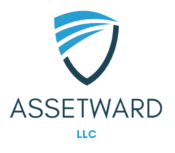Limited Liability Companies (LLCs) have long been celebrated for their ability to shield business assets from the personal creditors of their members, and Wyoming’s LLC laws take this resilience to another level. Through a combination of statutory clarity, robust case law, and creditor-thwarting mechanisms, Wyoming has crafted an environment where piercing the veil of limited liability is exceptionally difficult—making it a haven for business owners and asset protection strategists.
At the heart of Wyoming’s approach is its LLC Act, which explicitly reinforces the separation between the entity and its members. Under Wyoming Statute § 17-29-304, the failure of an LLC to observe formalities (like holding regular meetings or keeping meticulous records) isn’t grounds for piercing the veil—a stark contrast to many states where such lapses can weaken liability protections. This statutory safeguard reflects Wyoming’s pro-business stance: It recognizes that small businesses or single-member LLCs shouldn’t lose their shield over administrative oversights.
Wyoming also bolsters its LLCs with a charging order as the exclusive remedy for creditors of an LLC member. Per Wyoming Statutes § 17-29-503, if a member faces personal creditors—say, from a lawsuit or bankruptcy—those creditors can only obtain a charging order against the member’s interest. This means they’re limited to receiving distributions the LLC chooses to make, without the power to force a sale of assets, seize control, or dissolve the entity.
Unlike some jurisdictions where creditors might leverage additional remedies, Wyoming slams the door shut. If the LLC decides to reinvest profits rather than distribute them, creditors are left with a hollow claim—a feature that’s made Wyoming a darling of asset protection planners.
Piercing the veil in Wyoming requires extraordinary circumstances, like proving intentional fraud or that the LLC was a mere „alter ego“ of the member. Courts demand clear evidence of misconduct—co-mingling personal and business funds, gross undercapitalization, or using the LLC to perpetrate a sham. Wyoming case law, though sparse due to the state’s small population, consistently upholds this high bar. For instance, the Wyoming Supreme Court has signaled its reluctance to erode LLC protections absent egregious abuse, aligning with the state’s legislative intent to prioritize entity integrity.
Single-member LLCs (SMLLCs) get an extra layer of armor in Wyoming, too. While some states have wavered on whether SMLLCs deserve the same protections as multi-member LLCs, Wyoming’s statutes treat them equally. This clarity eliminates a common creditor attack vector—arguing that a sole member’s control justifies veil-piercing. Add in Wyoming’s low fees, privacy protections (no public disclosure of members), and lack of state income tax, and it’s no wonder the state’s LLC framework is a gold standard. In practice, this means a Wyoming LLC can weather aggressive creditor challenges where others might falter. Personal debts or judgments against a member rarely spill over to threaten the business itself.
For entrepreneurs, investors, or anyone holding valuable assets—from real estate to intellectual property—Wyoming’s LLC law offers a fortress of limited liability that’s tough to breach.



